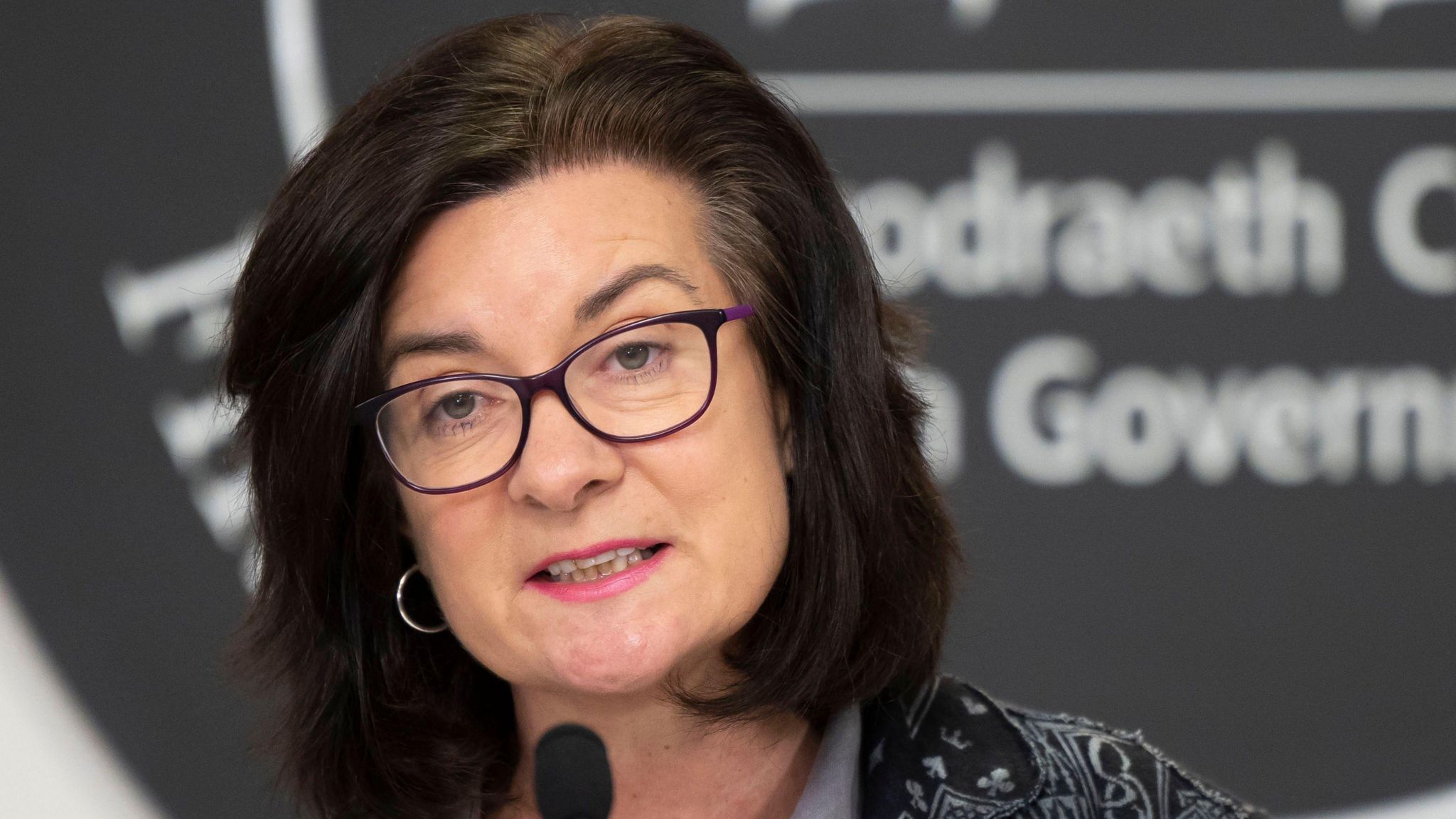Politics
Eluned Morgan Set to Make History as First Female Leader of Welsh Labour

Eluned Morgan is on the cusp of making history as Welsh Labour’s first female leader, embarking on a second attempt at this significant political milestone. The landscape surrounding her candidacy this time is markedly different compared to her previous bid six years ago, which faced a rocky start.
Back then, Morgan struggled with a lack of support from fellow Labour politicians, a situation that nearly prevented her from even securing a place on the ballot. Fast forward to the present day, and the situation has evolved dramatically. Following the short-lived and troubled leadership of Vaughan Gething, other potential rivals are stepping aside to clear the path for Morgan.
If successful, this leadership role would represent the culmination of a political journey that has seen Morgan participate in three different parliaments, demonstrating her commitment to public service throughout her career.
In her earlier campaign, Morgan characterized herself as a “bit of a disruptor.” While that label may hold some truth, her long-standing engagement in politics suggests a deep-rooted dedication to the field. Growing up in a politically active household in Ely, Cardiff, she was surrounded by political discourse from a young age. Her father, Bob, served as a vicar and led South Glamorgan council, while her mother, Elaine, was a councillor.
Describing her childhood home as the “headquarters for political activity in the west of Cardiff,” Morgan recalls her upbringing fondly. She shared connections with future first ministers Rhodri Morgan and Mark Drakeford, who were part of her family’s political circle. Morgan’s educational journey took her to Cardiff’s Ysgol Glantaf and later to Atlantic College, where she won a scholarship. Following her studies at the University of Hull, she began a career in television before entering the political arena.
At just 27, Morgan became the youngest member of the European Parliament after being elected in 1994, a significant achievement in her political career. Her ministerial biography presents her as one of the very few full-time female politicians representing Wales at that time, and notably, she was the first from Wales to give birth while in office.
In 2009, after her tenure as an MEP, Morgan transitioned to the energy sector with SSE. Her political journey continued when she was granted a peerage in 2011 and took her seat in the House of Lords as Baroness Morgan of Ely. During her time there, she served as a shadow minister for Wales. In 2016, she made the switch from Westminster’s parliament to Cardiff Bay’s assembly, securing a seat in the Mid and West Wales regional representation.
Her first bid for leadership was only made possible thanks to outgoing first minister Carwyn Jones, who provided her with a nomination. At that time, Huw Irranca-Davies, one of the few Labour politicians who supported her, is now her running mate. Unfortunately, Morgan finished last in that leadership race, trailing behind the eventual winner Mark Drakeford and second-placed Gething.
In the aftermath of that contest, Drakeford welcomed Morgan into his cabinet and later appointed her to the pivotal role of health minister in 2021. Inheriting a landscape battered by the Covid pandemic and chronic waiting times, Morgan’s tenure as health minister has been marked by both challenges and controversy. Her management of the NHS has been under scrutiny, leading to industrial action, as well as the hard decision to place a struggling health board in north Wales back into special measures.
In her frank assessment of the role, Morgan likened running the NHS under tight budget constraints to “hell on earth.” Such candidness is characteristic of Morgan, who has built a reputation for speaking her mind. This was further highlighted during the Covid inquiry, in which text exchanges revealed her candid thoughts regarding the Omicron variant, expressing concern that “We’re all f*****d!”
Despite her flowery language, which Morgan humorously acknowledged as not necessarily fitting, especially given her familial background with her vicar father and priest husband Rhys Jenkins, an NHS GP, it appears to be a reflection of her authenticity as a leader. Mother to two children, she has proven to be a relatable figure amidst her political aspirations.
Her straightforwardness also led to her apologizing in June 2022 after being banned from driving for six months due to multiple speeding offenses. The subsequent year, she found herself in hot water again for making a joke about Margaret Thatcher amid a Conservative reshuffle.
After previously entering the race for the top job, it was assumed she might contest to succeed Drakeford. Surprisingly, Morgan chose to support her former rival Gething instead. When questioned about her aspirations under a new first minister, Morgan candidly remarked, “Not necessarily. It’s a very, very tough job I must say.”
Despite signaling a potential desire for a change, Gething retained Morgan in her role as health secretary, to which she responded by defending him during challenging moments as leader. Now, just a short time later, she could be on the verge of stepping into a new role altogether.
Should she succeed in her bid for leadership, Morgan would face the immense task of not only becoming first minister but also unifying Welsh Labour amid the turbulence of recent months. The challenges ahead are daunting, but with her extensive experience and political acumen, Morgan’s potential ascendancy is one to watch closely in Welsh politics.












